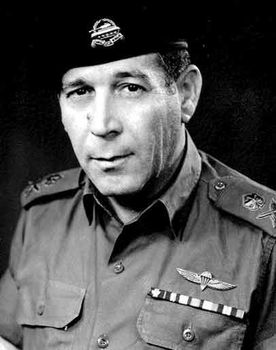SURROUNDED BY hostility, Israel focuses on military innovation, rather than mega systems, to ensure the safety of its soldiers. It is in this context that Israel's Merkava (Chariot) becomes one of the most significant main battle tanks developed so far.

Israel was the first nation to use explosive reactive armour—an innovation by Germany's Manfred Held—on its battle tanks. Similarly, Merkava was the first MBT to have its engine in the front, to allow a second exit in the rear. So if the tank is hit, its engine would be the first casualty, and the crew could exit safely. This hatch can also be used to take in injured troops.
The man behind Merkava, Major General Israel Tal, is hailed as Israel's best armoured warfare expert. At the Patton Museum in the US, his name is among the top five greatest armoured commanders, the others being George S. Patton (US), Erwin Rommel (Germany), Creighton Abrams (US) and Moshe Peled (Israel).
Tal is known for his role in the Six Day War—in which his armoured division broke through northern Sinai to decimate Egypt's tank columns from more than a kilometre away.
Aided by air superiority, Tal's division destroyed almost 800 tanks and armoured vehicles, and captured 100 abandoned tanks.
British historian Patrick Wright says Tal's breakthrough at Rafah is hailed as a model of 'adherence to mission' in British army publications, “which in Israel refers to a military operation that holds true to its fundamental aim while allowing its units to improvise in the unpredictability of actual conflict”.
In the Yom Kippur War of 1973, Tal famously disobeyed his defence minister, Moshe Dayan, who wanted Egypt's Third Army massacred, as it was enveloped by Israeli forces. But, by then, peace had been brokered, and Tal refused to violate ceasefire. Tal paid the price for ethic; he was not made chief of the defence force.
After the Yom Kippur War, Tal led a team that developed Merkava, one of the best tanks in the world today. In addition to the crew, it can take about ten soldiers. It has a tracking device that locks the gun on a target, so a 'miss' is a rarity.
Rolled out in 1982, Merkava held the record of not being affected by a hit for more than two decades till the Lebanon war in 2006.






